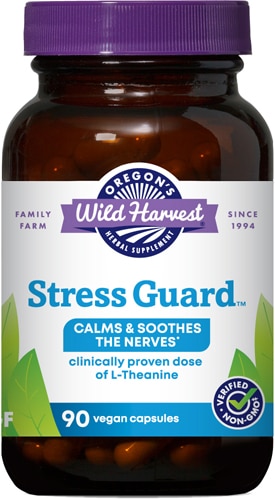April is National Stress Awareness month. How often do you experience stress, anxiety, worry or overwhelm? If you feel like you are losing yourself to the demands of life, you are not alone.
The American Institute of Stress claims that 75 to 90 percent of doctor visits can be attributed to stress. And the annual American Psychological Association's survey found that only 37 percent of Americans were doing an “excellent or very good job managing stress.” Our plates are full trying to balance family, personal life, work and -- heaven forbid -- squeezing in some me-time.
Identifying your stress patterns is key to your mood, health, relationships and productivity. The first step to any challenge or problem is to clarify it.
In order to minimize stress, you need to understand what stress is, what your stress triggers are and how stress affects you.
What is stress?
Psychology Today defines stress as 1) the psychological perception of pressure and 2) the body's response to it.
In small, short-term doses, stress is actually helpful and can boost performance. That’s called eustress. But in the go go go world in which we live, many of us are in overdrive most of the time. We are anxious, frustrated, worried and overwhelmed for prolonged periods of time. And that is when chronic stress can negatively impact our well-being.
Four types of stress
Dr. Karl Albrecht dissected stress and identified four distinct types:
- Time Stress: “I am stressed…that I don’t have enough time.”
- Anticipatory Stress: “I am stressed…about something in the future.“
- Situational Stress: “I am stressed…about a situation beyond my control.”
- Encounter Stress: “I am stressed…about my relationship with this person/group.”
Most people find that they have one or two dominant types. Which resonate for you? Try to think of these four types of stress to identify what is going on when you feel overwhelmed or anxious and determine whether it is in your control or beyond your control.
How stress affects you
Most people minimize how much stress affects them physically, mentally, emotionally and behaviorally. How do you even know when you are stressed? Here are some symptoms that can be attributed to stress.
|
PHYSICAL |
EMOTIONAL |
BEHAVIORAL |
MENTAL |
|
Aches & pains |
Moody |
Eating too much/little |
Forgetfulness |
|
Headaches |
Agitated |
Under/over sleeping |
Poor concentration |
|
Digestion problems |
Anxious |
Substance abuse |
Bad judgment |
|
Fatigue |
Depressed |
Social problems |
Negative outlook |
|
High blood pressure |
Insecure |
Frequent mishaps |
Burnout |
|
Loss of sex drive |
Unmotivated |
Sudden outbursts |
Low productivity |
|
Poor immunity |
Intolerant |
Fidgety |
Constant worrying |
|
Skin rashes |
Aimless |
Procrastinating |
Confused |
|
Too cold/too hot |
|
Jaw clenching |
|
What you can do about it
Regardless of the type of stress you experience, there are things within your control that will help reduce your stress levels. Start by picking one of the following skills to work on during National Stress Awareness Month. Each will get easier with practice:
- Mindfulness/mindful awareness: Be in the present moment with an open and non-judging mind. Mindfulness actually changes the structure of our brain, and also the activity associated with awareness, concentration, and decision-making. One easy exercise you can practice is equal diaphragmatic breathing. Just two minutes a day can lower your stress hormones and help you relax and de-stress.
- Time management: Calendar everything and don’t over-schedule. Avoid back-to-back meetings and expect that tasks will take longer than you thing. Plan at least 30 minutes of me-time each day doing something that makes you feel good.
- Mindset: Positive thinking can go a long way. Instead of dwelling on the negative, see the glass as half-full. Focus on what you are grateful for, solutions not problems, abundance rather than scarcity and what you can control as opposed to what you can’t. Aim high, but be realistic; expectations for perfection are a recipe for failure. Cut the self-criticism and negative self-talk. Appreciate your strengths and gifts and speak nicely and lovingly to yourself.
- Assertiveness: Acknowledge your triggers and your limits. Don’t say “yes” when you want to say “no.”
You got this!
Stress can consume you, or you can take control by examining what triggers it: mind, body, relationships, physical environment, work and financial issues. The effects of stress are cumulative, and you need to chip away consistently.
Experiment to find your favorite stress-reducing activities. Meditate, exercise, color, talk to a friend, try aromatherapy, spend time on a hobby or listen to music…the possibilities are endless. Know what works for you and prioritize it. Because when you feel better, you can be better.




